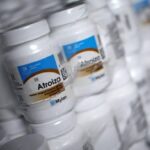Is Propan Good For Adults Trying To Gain Weight?

Although being lean can often be healthy, being underweight can be a concern if it’s the result of poor nutrition or if you are pregnant or have other health concerns. Being underweight is defined as having a body mass index (BMI) below 18.5. This is estimated to be less than the body mass needed to sustain optimal health. Conversely, over 25 is considered overweight and over 30 is considered obese. Use this calculator to see where you fit on the BMI scale (opens in a new tab).
What is Propan used for?
Propan is an appetite-stimulating medication used for all types of anorexia as seen in malnutrition & anorexia nervosa. For nutritional support in post-op states, chronic illness, metabolic disorders, Fe-deficiency anemia & convalescence.
Propan contains the following active ingredients:
- Buclizine HCl 25 mg
- Fe sulfate 80 mg
- Nicotinamide 10 mg
- Vitamin B1 10 mg
- Vitamin B2 1 mg
- Vitamin B6 5 mg
- Vitamin B12 5 mcg
Physical recovery from an eating disorder takes time, patience, and strategy. Reintroducing foods and nutrients too quickly can cause additional problems. The eating disorder recovery process begins with rebuilding the body’s digestive system. Once basic digestive functioning is on the mend, it may be time to begin reintroducing nutritional supplements.
B vitamins, iron, and other nutrients are especially important because they affect the body’s hunger and desire to sleep. The improper balance of amino acids can lead to depression, sleeplessness, fatigue, lack of hunger, or intense cravings. Along with the B vitamins already mentioned, there are a variety of other vitamins essential to proper digestion and physiological functioning.
How Propan works
Buclizine the main active ingredient in Propan is an antihistamine and antiemetic drug which has been shown to be effective as an appetite stimulant in children when administered in the syrup form. Propan induces a state of mild hypoglycemia or a decrease in blood glucose level. This sends a signal to the brain that the body is in a state of hunger thus, ordering it to eat by stimulating appetite.
This stimulation of appetite leads to increased food consumption and enhanced weight gain. Nutritional support during growth and development prevents metabolic and nutritional deficiencies due to malabsorption, restricted dietary intake, physical or mental stress, and trauma.
How effective is Propan for weight Gain?
Although Propan syrup formulation is being promoted as an incredible appetite stimulant for weight gain in children, there is a scarcity of data and scientific literature to back many of its claims on weight gain. Available information indicates that Propan increases both appetite and absorption of food in the body. It does not affect the growth hormone levels and it can maintain weight gain even after discontinuation of treatment.
How many days do I have to take Propan to gain weight?
The onset of action or amount of time taken by Propan to show its effects is not clinically established. Generally speaking, the more severely deficient you are in a vitamin or nutrient, the faster you’ll see a difference when taking Propan. Twenty-four hours after your first dose, you might start to notice the appetite-stimulating effect of Buclizine, B vitamins, and some of the other highly-soluble ingredients. However, in most cases, it takes around three to six weeks to see noticeable changes.
How long does Propan stay in the body?
The amount of time for which Propan remains effective in the body is not clinically established.
Is it safe to take Propan with alcohol?
No, avoid consuming alcohol while taking Propan. Consumption of alcoholic drinks is with a significant elevation in the risk of iron overload. Studies have also shown that alcohol inhibits the absorption and usage of vital nutrients, including vitamin B12 and vitamin B1, or thiamin. MedlinePlus describes alcohol as “one of the major causes of nutritional deficiency in the United States,” the biggest problem being that excessive alcohol use contributes to a deficiency in B vitamins: vitamin B1 (also known as thiamine), vitamin B6, vitamin B12, and folic acid. A mineral that alcohol tends to inhibit the absorption of is zinc.
Is Propan habit forming?
No habit-forming tendencies were reported.
Can I use Propan during pregnancy?
Propan is not recommended for use in pregnant women unless absolutely necessary. Your doctor will determine the best course of treatment after evaluating the potential benefits and risks associated with the use of this medicine.
Can I use Propan while breastfeeding?
Propan is not recommended for use in breastfeeding women unless absolutely necessary. Your doctor will determine the best course of treatment after evaluating the potential benefits and risks associated with the use of this medicine.
What are the side effects of Propan?
Common side effects of Propan include:
- Blurred vision
- Diarrhea
- Dizziness
- Drowsiness
- Dry mouth
- Epigastric pain
- Headache
- Incoordination
- Nausea
- Rash
- Urinary retention
- Vomiting
- Weight gain.
Special Precautions
Driving or operating machinery; open-angle glaucoma; urinary retention; prostatic hyperplasia, pyloroduodenal obstruction, epilepsy; renal and hepatic impairment; pregnancy.
Drug Interaction
CNS depressants: Central Nervous System (CNS) depressants are medicines that include sedatives, tranquilizers, and hypnotics. These drugs can slow brain activity, making them useful for treating anxiety, panic, acute stress reactions, and sleep disorders. Using these medications with Propan affects the way the medication works and increases the risk of serious side effects.





